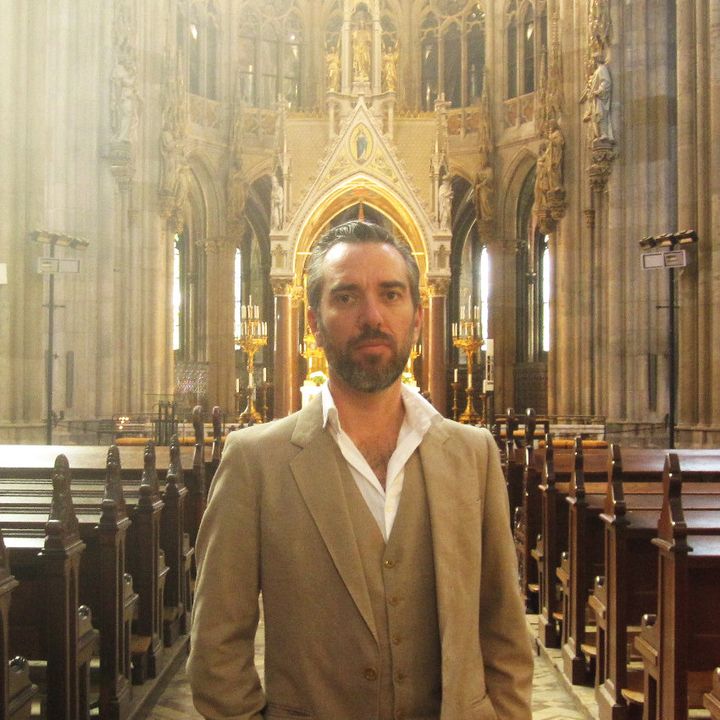Review: Will Montgomery + Robert Curgenven - Split
 The warm crackle of Montgomery feeds neatly into that of Curgenven. That aged rustle of vinyl is a constant presence through this split, and provides the necessary overlap to allow for it to work effortlessly as a singular listening session. The crackle represents the point of culmination: it’s a reminder of the collaging process, of the fact that these various clips sourced throughout different times and locations are being brought into a single document. At times, the “foreground” sound (a mixture of field recordings, drones, feedback and others) drops out to grant central focus to the sound of the vinyl itself. The listener is reminded of the collaging process – not just the places evoked through the sounds brought onto the medium, but the scissors and glue that are the medium itself, and the manual process that collates place and time into a solitary point.
The warm crackle of Montgomery feeds neatly into that of Curgenven. That aged rustle of vinyl is a constant presence through this split, and provides the necessary overlap to allow for it to work effortlessly as a singular listening session. The crackle represents the point of culmination: it’s a reminder of the collaging process, of the fact that these various clips sourced throughout different times and locations are being brought into a single document. At times, the “foreground” sound (a mixture of field recordings, drones, feedback and others) drops out to grant central focus to the sound of the vinyl itself. The listener is reminded of the collaging process – not just the places evoked through the sounds brought onto the medium, but the scissors and glue that are the medium itself, and the manual process that collates place and time into a solitary point.
But while the likenesses are enough to bring the record cohesion, there’s more than enough contrast to prevent one artist needlessly reiterating the other. Montgomery’s sound is the more jagged and synthetic of the two: the fizzle of loose wiring cross fades into the droning hum of power generator, as cold metallic edges surface above the vinyl warmth. Static bursts stutter about the quiet, fracturing into clicks and pops and being replaced by the beep of electronic communication. But there’s organic life in there too. Much of the piece is field recordings from the Heygate estate in Elephant & Castle, London (which is set to be demolished and replaced by a private development), and the music occasionally bustles with activity and the sounds of the day-to-day. Montgomery has salvaged the last few morsels of breath drifting around the vacated estate, although its vinyl context puts across the impression that its sonic fingerprint is already a relic.
As Curgenven’s piece takes over, the listener staggers out of central London and into the comparative quiet of the edge of town. Montgomery’s abrupt shifts are initially replaced by gradual organic movement, as drones rise into audibility and out again in gentle curves. Harmony creeps out of the feedback, lingering behind the intermittent waves of field crickets, public space conversation and traffic noise. While Montgomery’s soundscape encourages a state of alert with its constant transformations, Curgenven permits the listener to “sleep into” the sound, allowing the ever-present textures to embed themselves in the subconscious. The piece reaches a brief unexpected intensity peak during its closing stages, rising to a volume that feels excessive compared to the delicate quiet that dominates. A sudden cut into silence initially had me questioning if the composition had ended, as I strained for the intermittent vinyl pops that moved from being a contextual backdrop to becoming the sole indication of the piece’s continued existence. The entire split is beautifully constructed with the attentive listener in mind, but never more so than here.


